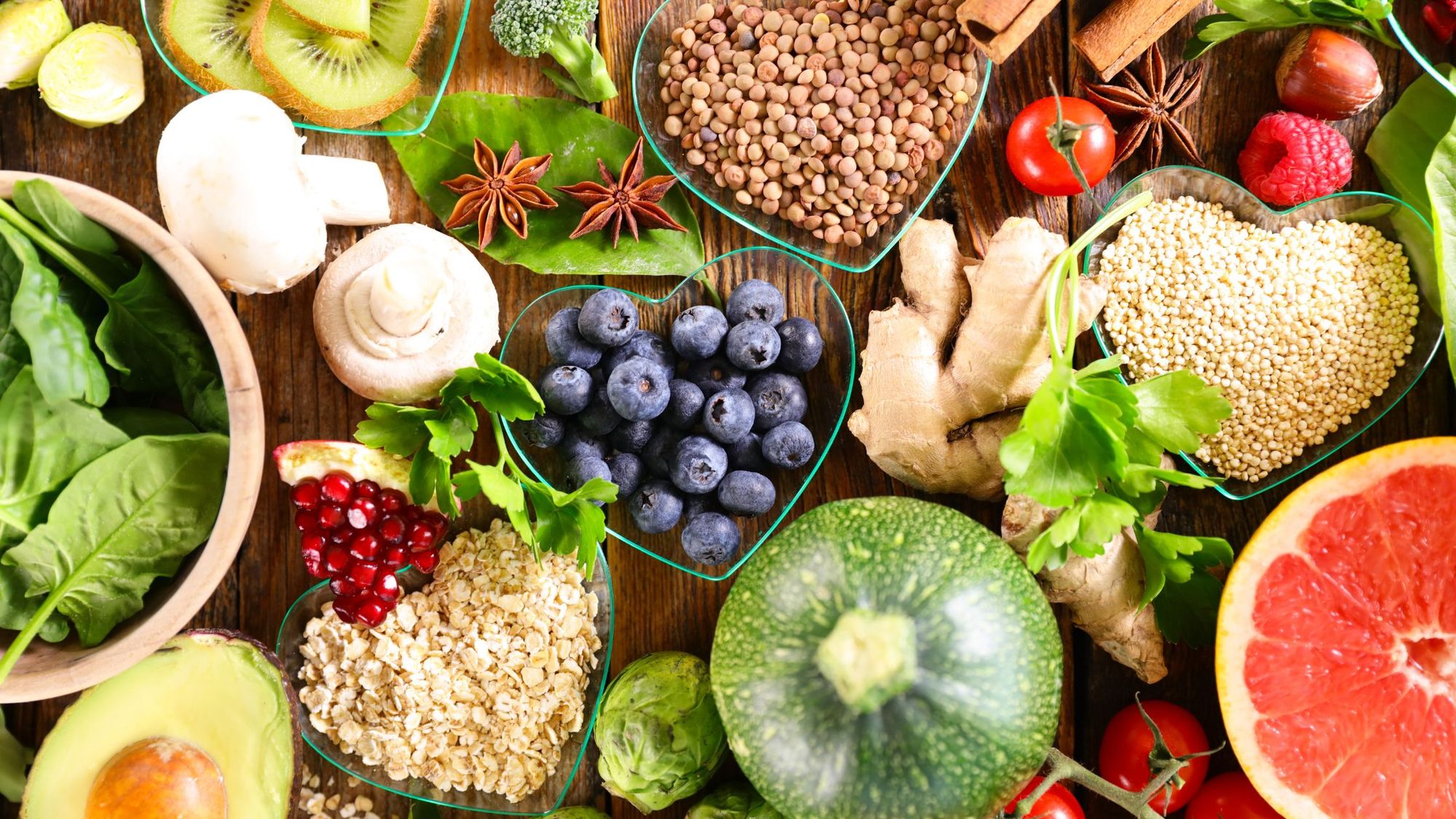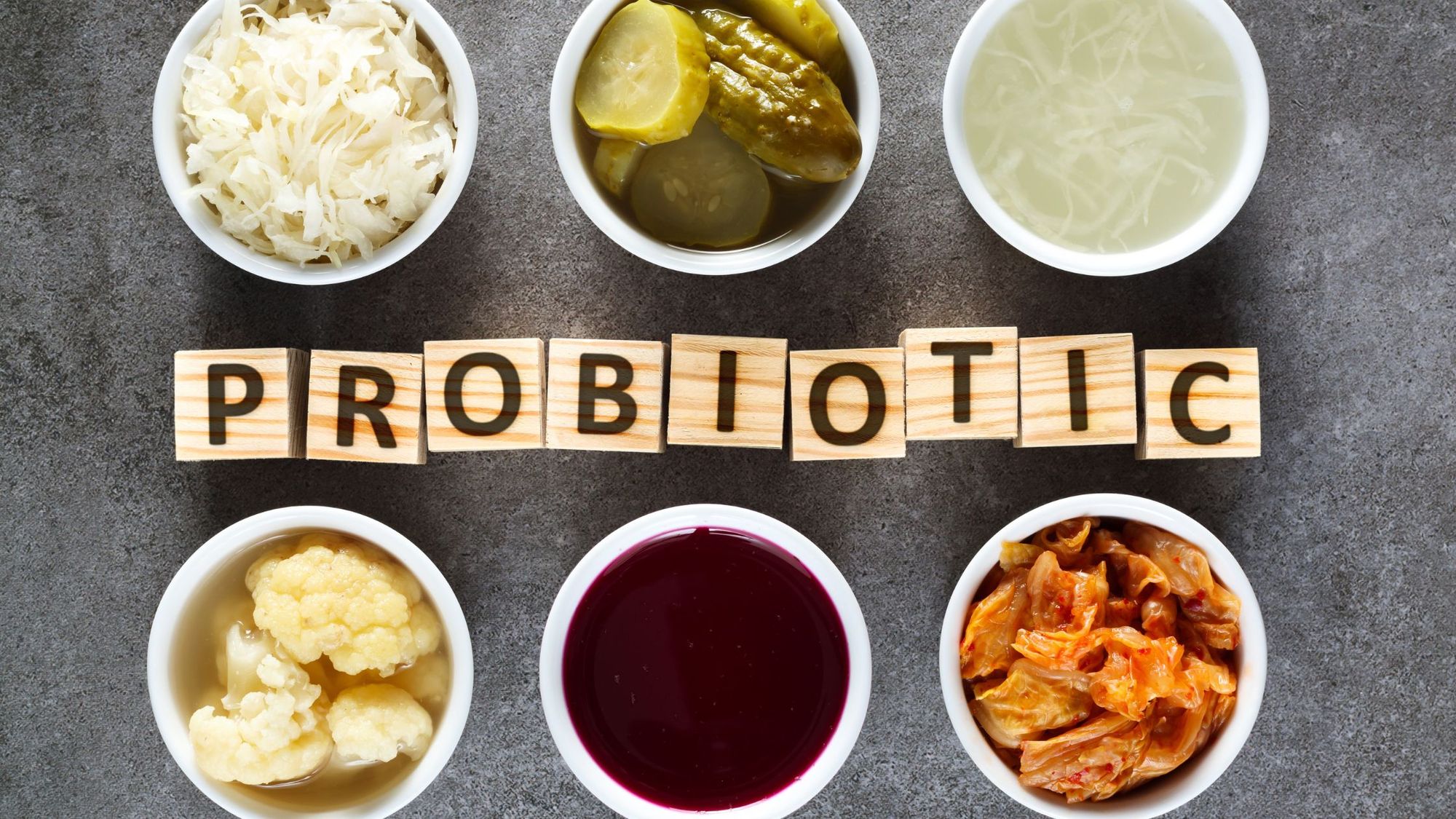
The link between diet and mental health is more significant than you might think. For years, scientists, nutritionists, medical professionals, and researchers have told us that what we eat has an impact on our well-being. Your food choices influence everything from your energy level and your mood, to your mental alertness and concentration.
While most of us are well aware of how diet influences physical health and weight, it’s easy to overlook the impact our nutritional choices have on our mental well-being.
A healthy and balanced diet might not eliminate the need for therapy or medication to manage the symptoms of psychological conditions or mental illness. However, choosing the right foods can still make a huge difference when it comes to how you feel, mentally and emotionally.
Researchers exploring the realm of nutritional psychiatry believe certain diets could effectively reduce the risks and symptoms of depression, anxiety, stress, and more.

The Connection Between Diet and Mental Health
Primarily, doctors and therapists treat mental health conditions with a variety of therapies, ranging from medications to counseling sessions. However, researchers are also discovering a link between mental health and healthy lifestyle choices.
Nutritional psychiatry, which examines the link between diet and mental health, indicates that certain food choices can either aggravate or subdue mental health symptoms, based on the unique components of the foods. According to researchers in this field, there are a number of reasons why diet and mental health regularly overlap and correlate with each other. First of all, what you eat has an impact on your body’s production of serotonin.
Serotonin is one of your brain’s natural ‘feel good’ chemicals, and you can impact serotonin levels in the brain based on the food you eat. Serotonin is the neurotransmitter associated with happiness that is used by the body to regulate appetite, sleep, mood, and pain signals. Around 95% of this substance is produced in the gastrointestinal tract. This has prompted researchers to explore how the digestive system can influence our mood.
While additional research is necessary to fully understand the link between diet and mental health, experts believe food influences our mood because:

1. Food Influences the Gut Microbiome
Our gastrointestinal system and brain are closely linked. The gut hosts billions of microbes which contribute to crucial functions in the body. They create neurotransmitters which send messages to the brain about sleep, pain, appetite, emotion, and mood.
Studies into the gut-brain connection suggest foods which help to support a healthy gut microbiome can also help reduce symptoms associated with mental health conditions. The healthier your gut is, the more likely you are to produce the enzymes you need to regulate your emotions.
2. Good Food Supports Brain Development
The foods we eat influence how our brain develops and grows. When we eat a nourishing, balanced diet, we provide fuel to our brains, and other parts of our body. We’re providing our brain with crucial nutrients and minerals. These substances ensure that brain function can thrive, and perform more effectively.
Certain foods can help to nourish the brain’s pathways, support the development of mood regulating hormones, and ensure we feel more equipped to handle issues of stress and anxiety.
3. Certain Foods Can Exacerbate Mental Health Disorder Symptoms
Some foods, when eaten in excess, can make the symptoms of mental health conditions feel worse. High levels of processed foods in the diet, for example, can sometimes contribute to issues of brain fog and poor concentration, which are also common side effects of depression and anxiety.
Some foods can also cause us to feel more lethargic or exhausted, which can be problematic if your energy levels are already low, due to depression.
Which Diets are Best for Mental Health?
Research into diet and mental health is still ongoing, but studies have begun to reveal some evidence that certain diets may be more beneficial to those with specific mental health conditions. For instance, for people suffering with depression, the Mediterranean diet could be an excellent choice.
One study found that a diet rich in whole grains, legumes, vegetables, and fruits, and low in processed meats, is associated with 10% lower instances of depression symptoms. Various other reports exploring the impact of the Mediterranean diet on depression suggest people were less likely to experience depressive symptoms when eating a traditional diet, compared to modern western diets, high in saturated fats and processed foods.
While there’s no guarantee a change in diet will eliminate mental health symptoms, some holistic medical professionals are beginning to recommend diets rich in legumes, nuts, fish, vegetables and fruits for those with depression.
For people suffering from stress and anxiety, recommended diets tend to revolve around avoiding certain foods which can worsen symptoms, such as caffeine, sugar, and alcohol. Some research indicates a low-sugar diet with fewer saturated fats can minimize symptoms of anxiety and depression. Additionally, foods which reduce inflammation could be a great way to fight stress.
Fiber-rich foods, fermented foods, and unsaturated fats could help to nourish the body and brain in a way that reduces blood pressure, and feelings of anxiety.
Which Foods or Substances Improve Mental Health?
Most studies into diet and mental health indicate that a nutritious, balanced diet with plenty of nutrients, vitamins, and minerals is the right way to go to protect your mental health. Studies indicate that nutrient-dense diets are generally linked with reduced stress, worry, and higher levels of happiness.
Of course, the best diet for each individual can vary depending on their specific situation. If you’re thinking of making some basic changes to your food choice, some of the most beneficial substances you can consider stocking up on include:
· Omega-3 fatty acids: Great for nurturing the brain and supporting cognitive processing, omega-3 fatty acids can assist with boosting memory and focus. Consider stocking up on fatty fish such as herring and salmon, as well as walnuts, flaxseeds, and beans.
· Iron: People with anemia, or too little iron in their bloodstream, may have a higher risk of depression. Eating iron-rich foods such as dark chocolate, raw cacao, beef, lentils, and spinach could be a great way to boost your mood.
· Zinc: Zinc plays a crucial role in managing your body’s stress response. Low levels can contribute to depression and anxiety. You can find plenty of zinc in products like oysters, lobster, chicken, and even pumpkin seeds.
· B Vitamins: People with low levels of Vitamin B12 generally suffer from higher levels of brain inflammation, reduced focus, and mood issues. Consider eating more potatoes, chickpeas, and chicken breasts for vitamin B.
· Folate: Some evidence suggests that low levels of folate may correlate with a higher risk of depression and anxiety. You can increase your consumption of folate by eating plenty of leafy green vegetables such as spinach and kale, as well as rice and asparagus.
· Magnesium: We cannot discuss the link between diet and mental health without talking about magnesium. You certainly need magnesium in your diet to improve your mental health. Low levels of magnesium can worsen a host of mental illness symptoms, ranging from irritability, anxiety and panic to obsessive compulsive disorder symptoms. Eat plenty of black beans, cashews, spinach, tofu, raw cacao, and pumpkin seeds for increased magnesium in your diet.
Outside of these core micronutrients, it’s also worth investing in a balanced diet, with plenty of other vitamins, such as vitamin A, and C, to improve mental functioning. Diets rich in colorful fruits and vegetables also include fiber and polyphenols, which can have a significant impact on mental health.
One particular study found that eating vegetables and fruits regularly led to higher levels of optimism in participants, as well as lower levels of psychological discomfort. Diets rich in fiber, thanks to substances like whole grains, can also lower anxiety and depression, while reducing inflammation in the gut.
Prebiotics and probiotics can also be an excellent tool for nurturing the gut microbiome. Studies suggest that prebiotics and probiotics are fantastic for creating homeostasis in the gut, which can also reduce your symptoms of anxiety, depression, and stress.
While supplemental pills are available, you can also improve your access to probiotics by eating fermented foods such as yogurt and kimchi, as well as certain vegetables, fruits, and grains, such as artichokes, apples, and barley.
Which Foods Are Bad For Your Mental Health?
Understanding the connection between diet and mental health means knowing not just which ingredients can improve your mental well-being, but also which foods may exacerbate symptoms of mental health conditions. In general, experts agree that ultra-processed foods, and substances rich in certain substances, such as sugar, can lead to a higher risk of mental health problems and mood disorders.
Highly processed foods, which contain a lot of unwanted chemicals and sugars, are commonly linked to an increased risk of mental health symptoms. Eating baked goods, candy, and sweetened beverages could also increase feelings of anxiety, stress, and depression according to some studies.
Certain beverages, such as caffeine-rich energy drinks and alcoholic drinks can also make mental health symptoms worse. Excessive alcohol consumption is frequently linked with mental health issues, particularly when the use of alcohol turns into excess or an addiction.
Interestingly, the times of day you choose to eat your meals could also have an impact on your mental health. The times we choose to eat influence factors like circadian rhythm and inflammation in the body, which could lead to increased mental health symptoms.
One study found irregular eating patterns were more commonly associated with a loss of productivity, sleep issues, and higher levels of neuroticism.
Following a regular schedule with regular and appropriate meal times could be a good way to minimize your symptoms if you have mental health struggles.
How to Navigate Diet and Mental Health
Ultimately, research suggests that diet and mental health are closely linked. The foods you eat can either exacerbate the mental health symptoms you already face, or help to make them less aggressive. That expression, You are what you eat, holds some truth.
In general, the best way to protect yourself, both mentally and physically, is to eat a nutrient-rich, balanced diet, free from excessive amounts of processed food, and free of excess sugar or excess alcohol.
Of course, your exact dietary needs will also vary depending on your unique genetic body composition. An at-home DNA test from CircleDNA will give you genetic diet and nutrition reports. These reports contain information about the optimal diet for you, based on your genetic makeup, so you can make more intelligent food choices.
References:
- NCBI: Nutritional psychiatry: Towards improving mental health by what you eat
https://pubmed.ncbi.nlm.nih.gov/31735529/ - NCBI: The Complex Molecular Picture of Gut and Oral Microbiota-Brain-Depression System: What We Know and What We Need to Know
https://pubmed.ncbi.nlm.nih.gov/34819883/ - NCBI: Association of a priori dietary patterns with depressive symptoms: a harmonised meta-analysis of observational studies
https://pubmed.ncbi.nlm.nih.gov/31409435/ - NCBI: A Mediterranean-style dietary intervention supplemented with fish oil improves diet quality and mental health in people with depression: A randomized controlled trial (HELFIMED)
https://pubmed.ncbi.nlm.nih.gov/29215971/ - NCBI: A Comparison of Sugar Intake between Individuals with High and Low Trait Anxiety: Results from the NutriNet-Santé Study
https://pubmed.ncbi.nlm.nih.gov/33946586/ - NCBI: Food and mood: how do diet and nutrition affect mental wellbeing?
https://pubmed.ncbi.nlm.nih.gov/32601102/ - NCBI: Folate and depression—a neglected problem
https://www.ncbi.nlm.nih.gov/pmc/articles/PMC1810582/ - NCBI: A review of dietary and microbial connections to depression, anxiety, and stress
https://pubmed.ncbi.nlm.nih.gov/16542786/ - NCBI: Fruit and Vegetable Intake and Mental Health in Adults: A Systematic Review
https://pubmed.ncbi.nlm.nih.gov/31906271/ - NCBI: Ultra-processed and fresh food consumption and symptoms of anxiety and depression during the COVID – 19 pandemic: COVID Inconfidentes
https://pubmed.ncbi.nlm.nih.gov/35063203/ - NCBI: Association between Irregular Meal Timing and the Mental Health of Japanese Workers
https://pubmed.ncbi.nlm.nih.gov/34444937/






